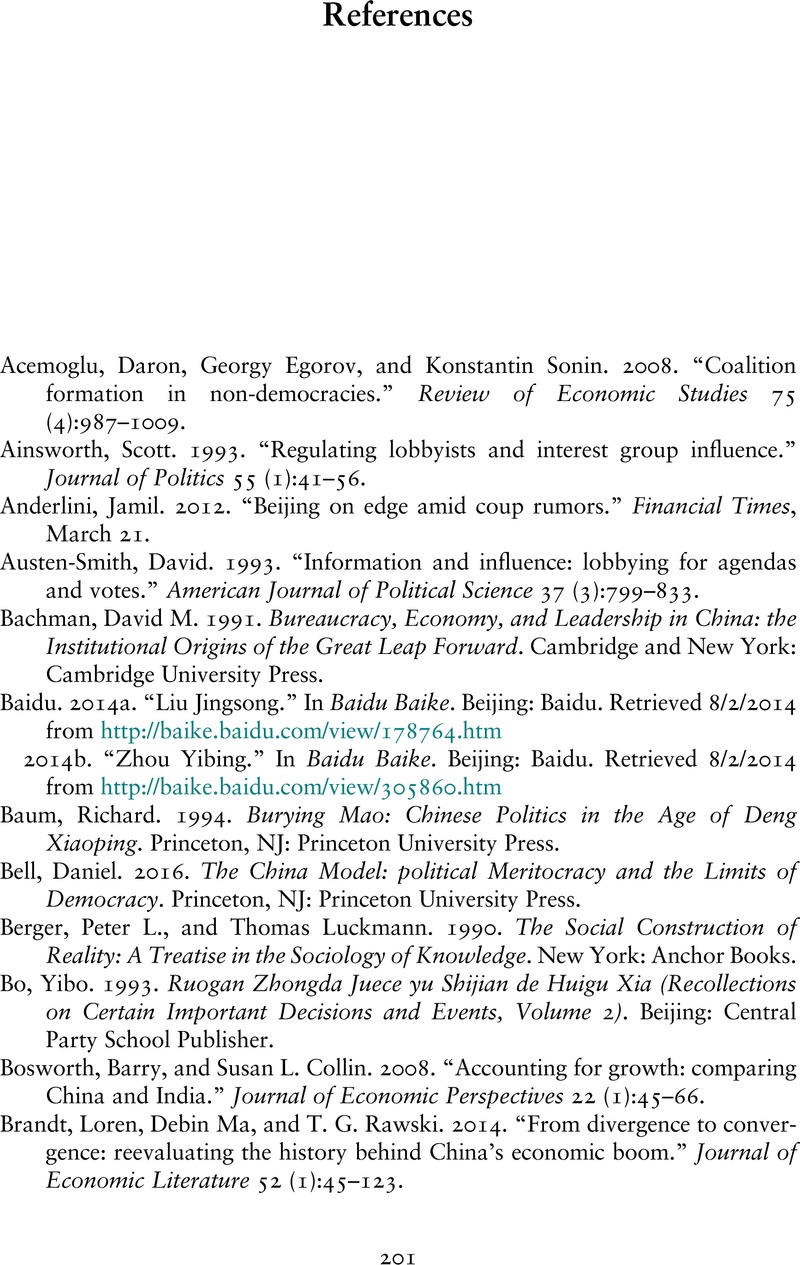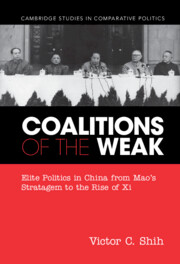Book contents
- Coalitions of the Weak
- Cambridge Studies in Comparative Politics
- Coalitions of the Weak
- Copyright page
- Dedication
- Contents
- Figures
- Tables
- Acknowledgments
- 1 Introduction
- 2 Coalition of the Strong
- 3 “Counterrevolutionary Splittists” in Mao’s Ruling Coalition
- 4 The Scribblers Mafia
- 5 Realizing the Coalition of the Weak
- 6 The Collapse of the Coalition of the Weak and Power Sharing in the 1980s
- 7 Weak Successors
- 8 Conclusion and the Future of the Chinese Communist Party
- References
- Index
- References
References
Published online by Cambridge University Press: 26 May 2022
- Coalitions of the Weak
- Cambridge Studies in Comparative Politics
- Coalitions of the Weak
- Copyright page
- Dedication
- Contents
- Figures
- Tables
- Acknowledgments
- 1 Introduction
- 2 Coalition of the Strong
- 3 “Counterrevolutionary Splittists” in Mao’s Ruling Coalition
- 4 The Scribblers Mafia
- 5 Realizing the Coalition of the Weak
- 6 The Collapse of the Coalition of the Weak and Power Sharing in the 1980s
- 7 Weak Successors
- 8 Conclusion and the Future of the Chinese Communist Party
- References
- Index
- References
Summary

- Type
- Chapter
- Information
- Coalitions of the Weak , pp. 201 - 218Publisher: Cambridge University PressPrint publication year: 2022



